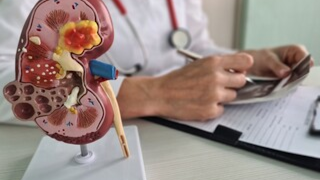Optimal Water Intake for Kidney Stone Patients: Debunking Myths and Ensuring Hydration

Introduction For kidney stone patients, maintaining proper hydration is crucial in preventing stone formation and promoting overall kidney health, well before having to look for kidney stone removal options. While there are many misconceptions surrounding water intake and its impact on kidney stones, it is essential to understand the optimal amount of water required and debunk any prevailing myths. In this blog post, we will explore the significance of water intake, debunk common myths, and discuss alternative options to stay hydrated for individuals with kidney stones, having explored what the causes for kidney stones are in the first place. Determining Adequate Water Intake When assessing water intake for kidney stone patients, it is important to consider the total urine production. A general guideline is to aim for 2 to 2.5 liters of urine output in a span of 24 hours. To achieve this, consuming approximately 3 to 3.5 liters of water per d...
